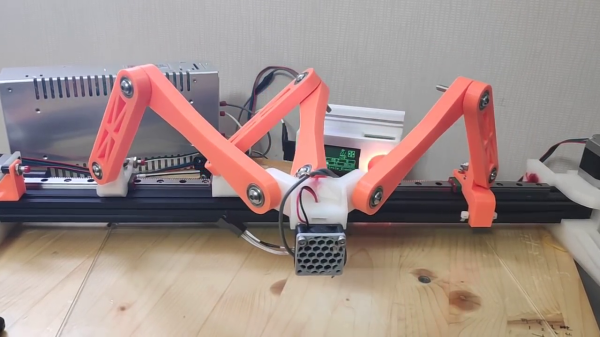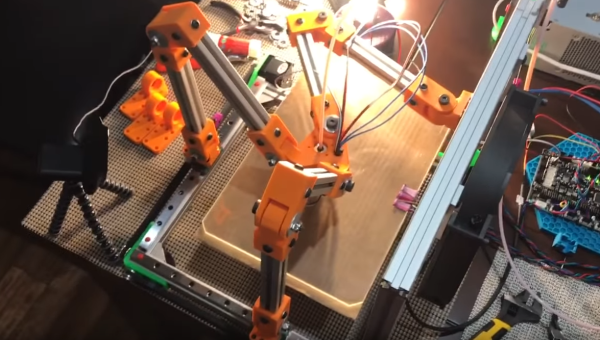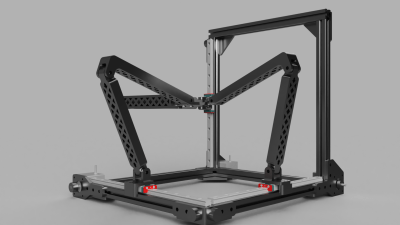[JK Lee] has been experimenting with a monorail tripteron motion control system (video, embedded below) and trying to improve performance with varying tweaks to the design and with varying degrees of success. But [JK] is enjoying this project — he was inspired by an idea that maker [Nicholas Seward] proposed — building a tripteron on two rails (video), or even building one on a single rail (video). He is making good progress, most recently working on solving a vertical bounce issue. He is focusing on the middle arm, as this arm carries most of the weight. You can see a brief video explanation of the kinematics of the monorail tripteron that [JK] made (he warns us that English is not his native language, so focus on the equations and diagrams and not the grammar).
If you’re not familiar with the tripteron, it was conceived, along with the quadrupteron, at the Robotics Laboratory at Université Laval in Canada and patented by their researchers back in 2004. We wrote about an early implementation of a tripteron by [Apsu] back in 2016. These recent experiments, reducing the mechanism down to a single or double rail, are interesting.
Other than cool projects for makers like [Nicholas] and [JK] who enjoy tinkering, are there any applications of tripterons and/or quatrupterons in the real world? Let us know in the comments below. Thanks to [Littlejohn] for sending in the tip.



 A few people have experimented with Tripteron printers over the years, but as far as we can see, no one has ever demonstrated a working model. Enter [Apsu], who showed up about a month ago. She started a post on the RepRap forums discussing her particular design. She works fast, and has now demonstrated a working prototype making prints. Sure they’re just calibration cubes, but this is a huge step forward.
A few people have experimented with Tripteron printers over the years, but as far as we can see, no one has ever demonstrated a working model. Enter [Apsu], who showed up about a month ago. She started a post on the RepRap forums discussing her particular design. She works fast, and has now demonstrated a working prototype making prints. Sure they’re just calibration cubes, but this is a huge step forward.








